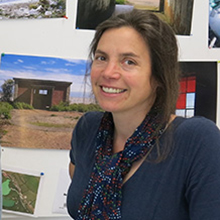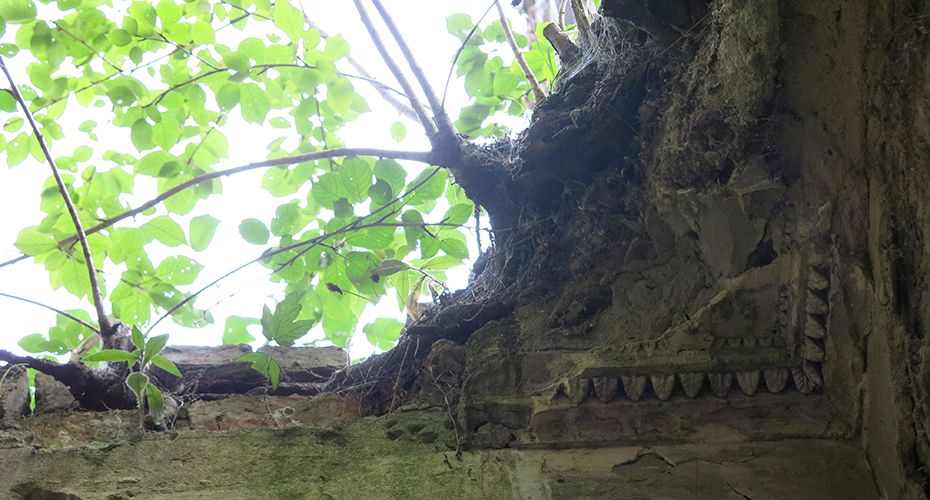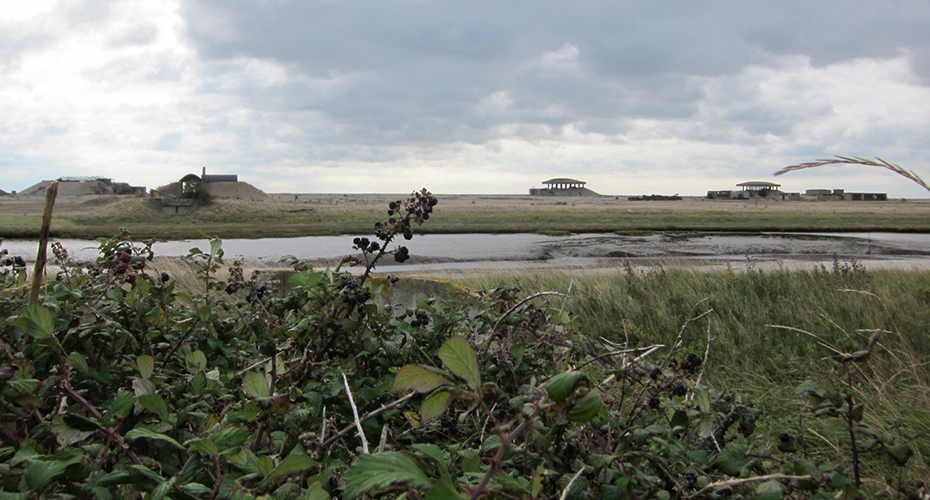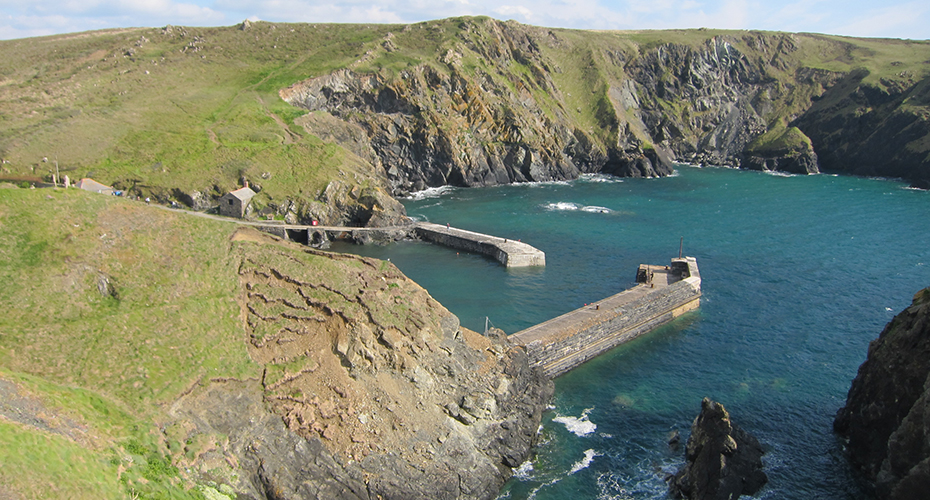Landscape Futures and the Challenge of Change: Towards Integrated Cultural/Natural Heritage Decision Making
Research overview:
In coming decades, the need to adapt to and mitigate accelerated environmental change will require heritage and landscape managers to make difficult decisions about how to manage assets and allocate resources.
The assertion that heritage assets are irreplaceable has traditionally underpinned a commitment by the heritage sector to protect assets from cultural and biophysical processes that may cause damage or loss of historic fabric. UK and international heritage stakeholders are now coming to appreciate that, in some contexts, promises of continued protection may be unsustainable; the sector is beginning to consider how to respond when change is inevitable, or when conservation at current levels is not feasible.
New strategies are required for sensitive, proactive management of heritage transformations, particularly in vulnerable coastal landscapes and for assets already in an advanced state of decline. The Landscape Futures and the Challenge of Change project (LFCC), which ran from February 2020 - January 2022, responded directly to the challenge that accelerated climate and environmental change poses for the natural and cultural heritage sector. The project was an AHRC Impact and Engagement Follow-on from the Heritage Futures project, and was supported as part of the UKRI Landscape Decisions programme.
Key outcomes:
Working collaboratively with the National Trust, Historic England and Natural England (and in consultation with a wider network of practitioners), the project developed and disseminated a new conceptual framework for heritage decision making - adaptive release - and resourced the UK heritage sector to engage with long-term thinking and respond to challenges more effectively and creatively.
A series of online workshops involving heritage practitioners and regulators facilitated meaningful cross-disciplinary, cross-sector exchange and consolidated knowledge about actual or perceived barriers to managing change and decline in UK heritage assets and landscapes. Workshop conversations explored how landscape-scale thinking can help practitioners identify opportunities for generating integrated cultural and natural heritage value through the careful management of change and transformation. Outcomes of the workshops are captured in a research paper and Historic England research report (see Publications).
Impact:
The project’s work is is having a wide-ranging impact on policy-making and practice in the UK and internationally. Taken forward by Historic England and the National Trust, the new framework is set to deliver practical outcomes for the management of asset transformations across the heritage sector, including:
- consistency in interpretation of relevant regulation and guidance
- confidence in making the decisions to manage for change
- capability in devolving decision making to local manager and inspectors

It’s easy to talk about being open to change, but it can be very difficult to implement in practice, particularly in places that have been conserved for their heritage value. In this project we’re trying to understand whether current heritage policy allows practitioners to manage for transformative change, and provide guidance that will support more proactive and adaptive approaches.
Professor Caitlin DeSilvey
Is There a Role for Adaptive Release in Heritage Practice? Policy Briefing Note. March 2022.
DeSilvey C, Fredheim H, Blundell A, Harrison R (2022) Identifying Opportunities for Integrated Adaptive Management of Heritage Change and Transformation in England: A Review of Relevant Policy and Current Practice, Historic England Research Report 18/22.
DeSilvey C, Fredheim H, Fluck H, Hails R, Harrison R, Samuel I, Blundell A (2021). When Loss is More: from Managed Decline to Adaptive Release. Historic Environment: Policy and Practice, 12, 3-4: 418-433.
Bartolini, N., & DeSilvey, C. (2021). Landscape futures: decision-making in uncertain times, a literature review. Landscape Research, 46(1), 8-24.
Professor Rodney Harrison, LFCC Co-Investigator, recently published an edited collection titled Deterritorializing the Future: Heritage in, of and after the Anthropocene (Open Humanities Press, 2020), that includes a chapter by Professor DeSilvey on ‘ruderal heritage’.
Bartolini, N., & DeSilvey, C. (2020). Making space for hybridity: Industrial heritage nature cultures at West Carclaze Garden Village, Cornwall. Geoforum, 113, 39-49.
The monograph Heritage Futures: Comparative Approaches to Natural and Cultural Heritage Practices draws on research undertaken over four years by an interdisciplinary, international team of researchers and partner organisations to explore the role of heritage and heritage-like practices in building future worlds.
Sefryn Penrose, Nadia Bartolini (2022) Adaptive Release: Guidance Framework for Sites Affected by Coastal Erosion and Flood Management, Historic England Research Report 85/22.
The Historic England research magazine featured the article "Landscape Histories for Landscape Futures" by Dr Rose Ferraby, Prof Caitlin DeSilvey, Dr Hannah Fluck and Dr Ingrid Samuel, as part of the National Trust and the University of Exeter strategic research partnership (October 2023).
Landscape Futures research features in the 2022 Climate Adaptation Report prepared by Historic England and the English Heritage Trust to report on progress against the goals set in the 2016 Climate Adaptation Report.
The project’s research was featured in a report launched on 20th October 2021 by the Historic Environment Forum’s COP26 Task Group. The report and accompanying story map chart how heritage organisations are taking an active and positive role in addressing the challenge of climate change.
In October 2021 Caitlin DeSilvey presented When Loss is More: From Managed Decline to Adaptive Release as part of the panel discussion ‘New Futures for Heritage: Challenging Sites and New Relevance’ for the National Trust for Canada’s Conference 2021 Heritage and the Global Reset: Seizing the Moment.
Hear Caitlin DeSilvey's interview with Katie Treggiden for the ‘Circular’ Podcast exploring the cultural significance of material change and transformation, with a particular focus on heritage contexts. July 2021.
In June 2021 Caitlin DeSilvey and Rodney Harrison featured on the BBC Radio 3 Green Thinking Podcast, talking about heritage action and adaptation in the climate emergency with Eleanor Barraclough from Durham University. Listen here.
In May 2021 the University of Exeter and National Trust announced a new national partnership between their organisations, which sees them joining forces to explore how both organisations can best respond and adapt to environmental and cultural change, support wildlife renewal and improve wellbeing through nature. LFCC Principal Investigator Professor Caitlin DeSilvey is one of the academic leads for the new partnership.
In May 2021, the National Trust launched a “game changing” climate hazards map illustrating the threat climate change poses to some of its most iconic and culturally significant sites. The map enables the Trust to understand how, at a local scale, potential risk factors (extreme heat and humidity, flooding, landslides, coastal erosion, soil heave and high winds) facing its countryside locations, monuments, coastlines and historical sites in England, Wales and Northern Ireland could change by 2060.
Through 2020, Historic England’s Environmental Strategy team, led by LFCC project Co-I Dr Hannah Fluck, ran a successful series of “Climate Friday: Climate Change and Cultural Heritage” webinars, in collaboration with the Climate Heritage Network. The series will resume in 2021, and previous webinars can be viewed here.
In July 2020, the AHRC Heritage Priority Area project hosted two half day conferences, titled 'Global Challenges, Sustainability and the Politics of Heritage' and 'Pathways and Barriers to Climate Action through Heritage Research'. Professor DeSilvey gave a talk titled “Risk? Relinquishment? Regeneration? Narrative choice in heritage climate research”.
The competition “Reimaging Museums for Climate Action” launched in May 2020, and challenged designers, architects, academics, artists, poets, philosophers, museum professionals and the public at large to radically (re)imagine and (re)design the museum as an institution, to help bring about more equitable and sustainable futures in the climate change era. The competition was developed by the AHRC Heritage Priority Area, led by LFCC Co-Investigator Professor Rodney Harrison, in conjunction with Colin Sterling (UCL Institute of Archaeology) and Henry McGhie (Curating Tomorrow).
The inaugural episode of "Unsettled Monuments, Unsettling Heritage", a podcast of CIVIC, the Cornell University task force for the humanities and the arts, features a conversation with Professor Caitlin DeSilvey about her most recent book, Curated Decay: Heritage Beyond Saving (University of Minnesota Press, 2017).
Professor Caitlin DeSilvey (University of Exeter) Principal Investigator
Professor Rodney Harrison (UCL) Co-Investigator
Dr Hannah Fluck (Historic England) Co-Investigator
Professor Rosie Hails (National Trust) Co-Investigator
Dr Ingrid Samuel (National Trust) Co-Investigator
Amber Blundell (Natural Environment Research Council), former University of Exeter Research Associate
Harald Fredheim (University of York), former University of Exeter Research Associate
UKRI Landscape Decisions Programme



